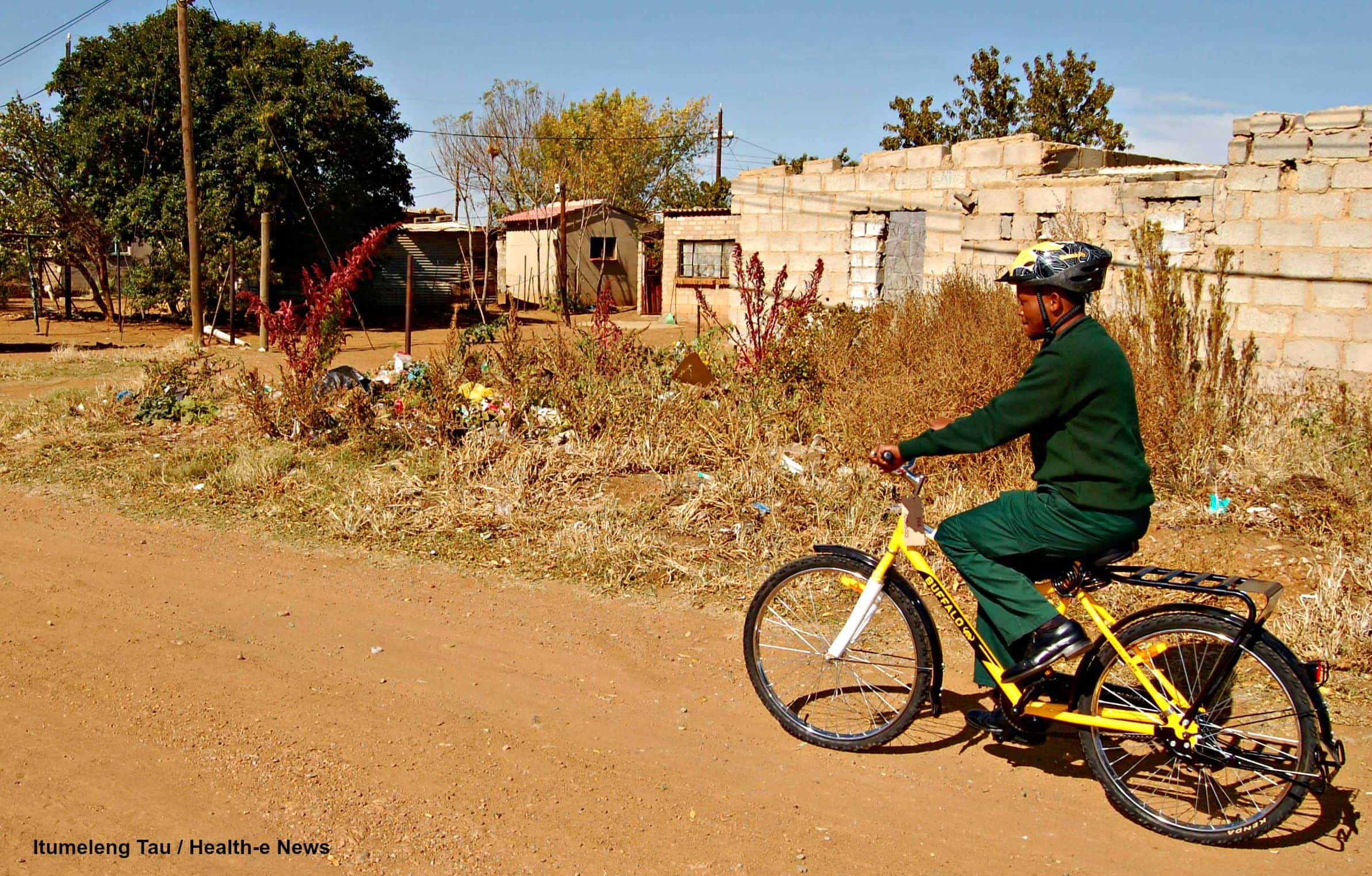December drinking puts spotlight on SA’s bad habits


“It is festive season and – with a large number of Christmas parties and the availability of bonuses – it means people will consume more alcohol,” said Savera Kaildeen, advocacy manager of Phuza Wize, a campaign to encourage responsible drinking. Soul City Institute for Health and Development Communication heads the campaign.
This is not news to alcohol companies, who spend half of annual advertising budgets on marketing alcohol between October and December, according to Kaildeen. She adds that as South Africans prepare to party, the nation should be angry that not more is done to curb the binge drinking and illegal liquor outlets. Unregulated, some of these outlets may also be selling to minors.
Jabulile Nkosi from Soweto prepares annually for festive drinking with the help of her alcohol stokvel. Her monthly contribution of R400 ensures she receives R4800 in booze just in time for the festive season.
“The reality is we drink more during the festive season than any other time of the year, so planning for it will save costs,” Nkosi said. “There is so much happening during the festive season, from house parties to Christmas lunches and braais.”
Joining the stokvel means Nkosi does not stress about stocking up on alcohol to ensure she does not arrive empty handed at functions.
She admits she is unlikely to finish her almost R5000 in alcohol and will likely store some for her sister’s May wedding.
December drinking
Lindiwe Matona also says she and friends spend about R300 per month to stock up on alcohol throughout the year as part of a similar stokvel. In December, members get four bottles of hard liquor, which some members say lasts about three weeks. For Matona, the arrangement helps her keep up with festive expectations around drinking while saving her salary for Christmas gifts and school fees, she says.[quote float=”right”]”The reality is we drink more during the festive season than any other time of the year”
A WHO report released in May defined heavy or binge drinking as consuming at least four beers or more in one sitting. The report found that about four percent of South African had drank heavily at least once in the past month. This percentage was about four times higher in men.
Heavy drinking is also a major contributor to violence, domestic abuse and road accidents, according to Phuza Wize’s Kalideen. She adds that she believes government and the alcohol industry are not doing enough to curb the practice by, for instance, cracking down on illegal shebeens.
According to Kalideen, liquor outlets can only legally sell alcohol between 10am and 2am but she says unlicensed taverns often sell outside of these hours.
“South Africans are sold not making enough noise about the way alcohol is sold in this country,” she told Health-e News.
No ID, no problem
These outlets may also be selling to minors.
In the farming community of Makwassie, North West cashiers at Dikgomo’s Tavern say they are just following orders when they sell to underage children.
“I just follow the owner’s instructions of selling the stuff to everyone,” said cashier Stompie Seiphetlho. “When the police accuse me, I send them to the owner to explain.”
“The police always tell the owner about (taking) legal action, but he doesn’t want to understand,” Seiphetlho said.
Moeketsi Koaho is the principal of the local Leruntse Lesedi Secondary School. Koaho says that use alcohol and drugs among learners is a problem and that it shows in scholastics.
“Learners do not want to attend school regularly and that as a negative impact on our (matric) pass rate,” said Koaho, adding that he believes substance abuse among learners fuels petty crime. – Health-e News.
Additional reporting by Kagisho Modise
An edited version of this story was first published in the 22 December edition of the Pretoria News.
Republish this article
This work is licensed under a Creative Commons Attribution-NoDerivatives 4.0 International License.
Unless otherwise noted, you can republish our articles for free under a Creative Commons license. Here’s what you need to know:
You have to credit Health-e News. In the byline, we prefer “Author Name, Publication.” At the top of the text of your story, include a line that reads: “This story was originally published by Health-e News.” You must link the word “Health-e News” to the original URL of the story.
You must include all of the links from our story, including our newsletter sign up link.
If you use canonical metadata, please use the Health-e News URL. For more information about canonical metadata, click here.
You can’t edit our material, except to reflect relative changes in time, location and editorial style. (For example, “yesterday” can be changed to “last week”)
You have no rights to sell, license, syndicate, or otherwise represent yourself as the authorized owner of our material to any third parties. This means that you cannot actively publish or submit our work for syndication to third party platforms or apps like Apple News or Google News. Health-e News understands that publishers cannot fully control when certain third parties automatically summarise or crawl content from publishers’ own sites.
You can’t republish our material wholesale, or automatically; you need to select stories to be republished individually.
If you share republished stories on social media, we’d appreciate being tagged in your posts. You can find us on Twitter @HealthENews, Instagram @healthenews, and Facebook Health-e News Service.
You can grab HTML code for our stories easily. Click on the Creative Commons logo on our stories. You’ll find it with the other share buttons.
If you have any other questions, contact info@health-e.org.za.
December drinking puts spotlight on SA’s bad habits
by sibongilenkosi, Health-e News
December 23, 2014



